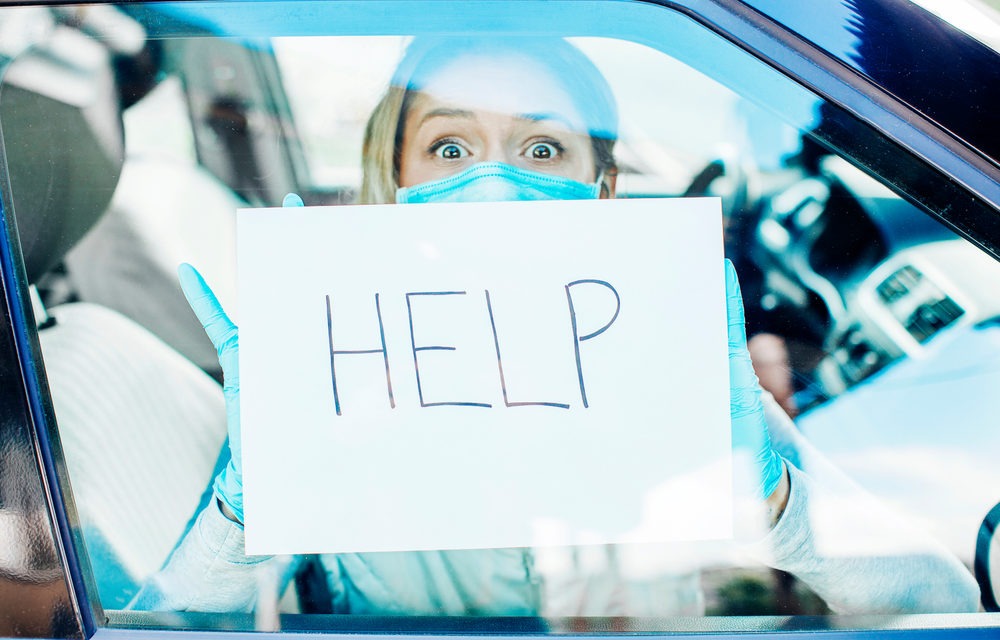Stay-at-home orders are designed to protect people from spread of the potentially deadly coronavirus, but in some cases, the homes have become breeding grounds for domestic violence.
Domestic violence goes up whenever families spend more time together, such as the Christmas and summer vacations, Marianne Hester, a Bristol University sociologist who studies abusive relationships, told the New York Times.
With typically 10 million domestic violence reports a year, the longevity of the virus will certainly drive up domestic violence reporting, according to Brad Garrett, a former FBI agent.
In the Coachella Valley, Shelter From The Storm, is “bracing for the increased impact to occur,” Angelina Coe, executive director of the Palm Desert-based shelter, told Uken Report. Shelter From The Storm is the Coachella Valley’s only comprehensive domestic victim assistance service and shelter provider organization. Its purpose is to provide support, prevent violence, and promote justice for victims of crime and abuse, their families and communities.
Shelter From The Storm is still working during COVID 19. It is offering individual sessions by telephone to its current clients. All in-person sessions, groups, and classes have been suspended until further notice. The office is staffed but no walk-ins or in-person visits until at least June 1, 2020.
Following is a Q&A Uken Report held with Coe regarding domestic violence in the Coachella Valley.
Uken Report (UR): Are you seeing increased cases of domestic violence? If so, can you quantify?
Angelina Coe (AC): We are bracing for the increased impact to occur. We are not seeing an increase in calls seeking domestic violence shelter. However, we are receiving calls requesting resources and information, especially for homeless individuals and callers who are not sure if they are being abused and do not know what to do or what help is available. I really could not quantify an increased number at this time. However, during natural disasters and times of increased stressors like job losses, school closures, lack of child care access, and prolonged close contact at home, individuals are at a greater risk of domestic violence. The shelter in place/stay-at-home mandates put couples and families in close contact for extended time periods without breaks or times that were once possibly considered safe times (i.e.. a partner goes to work or the children go to school or day care) which increases the likelihood of conflict and increased domestic violence.)
UR: Can you shed light on the reasons?
AC: I would only be guessing. It is not the stay-at-home, job losses, and school closures that create the potential for increased abuse, in non-abusive, peaceful partners or parents. It is households that have experienced violence in the past that are more likely to do so even more during time like these. It is about power and control of one partner by another. There is not healthy, rational problem-solving and conflict resolution, self-control, self-soothing skills, when dealing with crisis in these abusive relationship. The abusive partner does not have any control over this COVID 19 pandemic and the mandates being imposed on them, so they seek to power and control over their partner, children, and family which in turn will create increasing violence incidents.
UR: Is Shelter From the Storm open?
AC: Shelter From The Storm, Inc. (SFTS) is still working during COVID 19. We are offering individual sessions by telephone to our current clients. All in person sessions, groups, and classes have been suspended until further notice and our office is staffed but no walk ins or in person visits until at least June 1, 2020. We will soon be offering TeleMental Health services to current clients, which will include individual sessions and support groups. The hotline is still operational and taking calls. Unfortunately, due to social distancing guidance and safety precautions due to COVID 19 we are unable to take in new clients/families at this time. We just do not have the space available. We are still providing supportive services, safety planning, resources, and referrals via the hotline with possible future acceptance dates based on the severity of the situation for the caller.
UR: What should victims of domestic violence do during this time?
AC: The majority of domestic violence victims have been in isolation for years and now, the stay-at-home mandates have increased the opportunities for violent incidents to occur and abuse to escalate. Individuals that find themselves in these situations should plan for emotional and physical safety and seek support. If they can safely leave the relationship and situation, do so, however make sure to follow a safety plan and seek support. SFTS is offering support with safety planning over the phone at our Counseling Center/main office number as well as our hotline for victims of intimate partner. Victims need to know their surrounds, what areas are safety for them in the home, and have a plan of action for safety for them and their children if things escalate and become increasingly violent. Call for help, 9-1-1 or local law enforcement, if you are in imminent danger.
UR: What would you like to add?
AC: We are all in this together. If you are concerned about a friend, family member, neighbor, coworker, reach out and check in. Let them know you are there to listen, you care, and you are concerned. Call 9-1-1 or local law enforcement if you hear or see the violence escalating, do not put yourself in harm’s (way) or interfere. You are more help calling for help than trying to stop the abuse yourself. If you have questions about what signs to look for, or if you are unsure if you are in an abusive relationship, call Shelter From The Storm. We are here to help. Knowledge is power, help is available by calling SFTS’ hotline, 760-328-7233 or 800-775-6055 or the National Domestic Violence hotline at 800-799-7233.
Image Sources
- Help: Shutterstock




![Enrolling Now, Rewarding Careers Ahead [Sponsored]](https://ukenreport.com/wp-content/uploads/2024/04/COD_heroes_1-1385-2-440x264.jpg)


